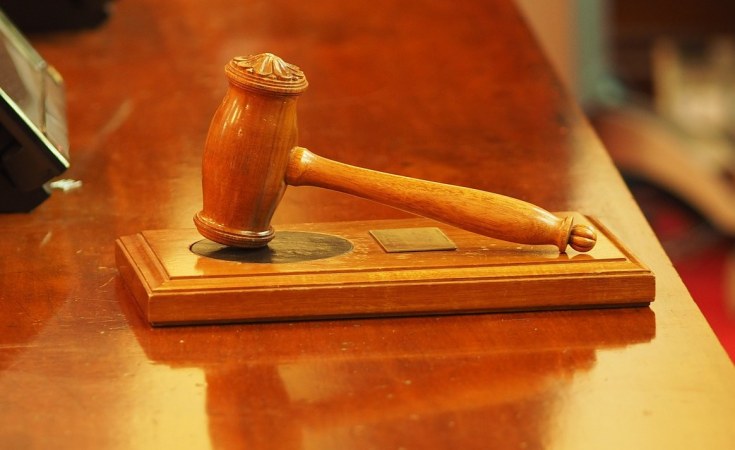The 2010 Constitution is constantly quoted as a rich menu of rights and freedoms that are intended to ensure human dignity of all persons and communities is protected. The progressive nature of the Bill of Rights shows an intention by Kenyans to establish a society where respect for human rights is a cardinal aim of the nation. This means that even the rights and freedoms of unpopular minorities are protected and ought to promoted.
The promise of the Constitution was affirmed on Friday, 24th February 2023, when the Supreme Court, in a majority judgment, affirmed the freedom of association and prohibition of discrimination of marginalized groups. The majority of the bench in affirming the earlier decisions by the High Court and the Court of Appeal held that the refusal by the NGO Co-ordination Board, by a letter dated 25th March 2015, to reserve any of the proposed names to register a Non-Governmental Organization (NGO) seeking to champion the rights of (Lesbian, Gay, Bisexual, Transgender, Queer or Questioning (LGBTIQ) persons in Kenya was unconstitutional. The NGO Co-ordination Board's Executive Director had declined to approve any of the proposed names on the grounds that Sections 162, 163 and 165 of the Penal Code criminalizes Gay and Lesbian liaisons.
While refusing to be drawn to moral arguments and questions regarding the constitutionality of same-sex sexual relations, the Supreme Court held that the NGO Co-ordination Board violated the right to freedom of association of the proponents of the proposed NGO under Article 36 of the Constitution. The Court was of the view that the appellant's decision was discriminatory and that it would be unconstitutional to limit the right to associate, purely on the basis of the sexual orientation of the applicants.
In addition, the Supreme Court determined that the use of the word "sex" under Article 27(4) does not connote the act of sex per se but refers to the sexual orientation of any gender, whether heterosexual, lesbian, gay, intersex, or otherwise. It was of the view that the word "including" under the same Article is not exhaustive, but only illustrative and would also comprise "freedom from discrimination based on a person's sexual orientation." Therefore, the actions of the NGO Board refusing to reserve the name was discriminatory.
The entrenchment of the freedom of association in the Bill of Rights reflects Kenyans' understanding and appreciation of the link between personal freedom and past experiences with threats to liberty during a pre-2010 authoritarian rule.
Our own quest for multi-party democracy in the 90's are a perfect reminder of precisely why the Supreme Court decision is welcomed. In a vast and complex society spilling over 50 million people, individuals, standing alone, have great difficulty in making their voices heard loud enough to make an impact. Where people band together in a variety of causes, their voices can be amplified and we used this to advocate for multi-party rights and interests.
By our vary nature, humans do not want to live their lives in isolation. We find meaning in connecting with others. Such connection flows voluntarily and naturally from the choices that people make. We are not coerced; people can enter and leave at their own discretion; they make these connections because they find meaning, benefit, and satisfaction from them. It is only a belief in totalitarianism, which is antithetical to the promise of liberty espoused in the 2010 Constitution, that denies people the right to make their own associations.
It is unfortunate that to-date, some state bodies and public officials still use personal views, religious, or moral persuasions to ignore rights and liberties enshrined in the Constitution. This comes out starkly in the case of unpopular minorities in the society like members of sexual minority groups whose rights are often casually waived away by majoritarian fiat.
By breathing life to the constitutional stipulation that the registration of an association cannot be withheld unreasonably, even in the case of unpopular minorities, the Supreme Court has affirmed that associational freedom is well and alive in Kenya. Therefore, everyone is allowed to associate without any unreasonable state interference so long as they are not interfering with other peoples' rights.
The Supreme Court has also underscored the importance of equality and non-discrimination under our constitutional order. The equal treatment of all persons under the law is a key marker that defines civilized societies. Indeed, treating people differently due to their personal characteristics is a violation of their human dignity. The denial of registration to an NGO that seeks to champion the rights and welfare of sexual minorities, sends the wrong signal that lesbians, gay, bisexuals etc are sub-human and lowers their moral worth. There is no justification for such differential treatment as these are our brothers.
Kenyans deserve the credit for having the foresight to vest in the courts the mandate of enforcing the Bill of Rights. Without the courts, our rights and freedoms would be no more than a list of mere aspirations that can be wished away by personal, moral and religious views of public officials. This Supreme Court decision rightly follows the paths chartered by courts in Botswana, South Africa, Mozambique and other African countries that have over time seen the importance of safeguarding the rights and liberties of all, including minority groups.
[The writer is a human rights activist]


